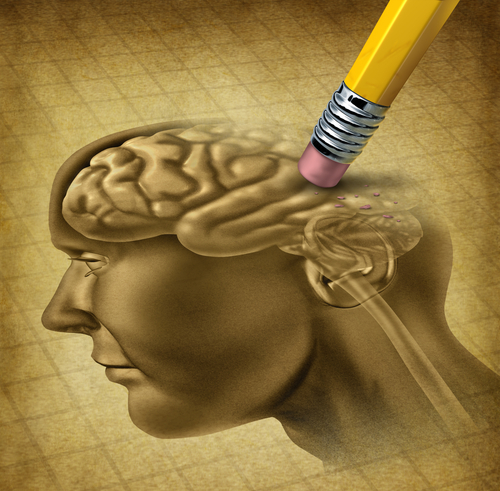Chemotherapy side effects ? Neurofeedback for Chemo Brain
Can Neurofeedback help Chemo Brain, or Chemotherapy Cognitive Impairment ?
In this study published in April 2013 and led by a breast cancer survivor who discovered Neurofeedback to help herself, 23 breast cancer survivors who reported Cognitive Impairment following chemotherapy undertook 20 sessions of Neurofeedback, and their cognitive function was measured before and after: Alvarez, J., Meyer, F. L., Granoff, D. L., & Lundy, A. (2013). The Effect of EEG Biofeedback on Reducing Postcancer Cognitive Impairment. Integrative cancer therapies. 21 out of 23 participants saw their symptoms ‘reversed’. “Strongly significant improvements” were seen on all 4 cognitive measures, all 4 psychological measures, fatigue and some sleep measures. The researchers concluded that Neurofeedback “has potential for reducing the negative cognitive and emotional sequelae of cancer treatment as well as improving fatigue and sleep patterns”.
What is Chemo Brain ?
It was initially reported by female breast cancer patients that they were having problems with thinking, memory and concentration. They attributed these effects to Chemotherapy, so called it ‘Chemo Brain’. These negative effects are known by various names, including:
- Chemo Brain
- Chemotherapy Cognitive Impairment
- Postcancer Cognitive Impairment (PCCI)
- Mild Cognitive Impairment
- Chemo fog
- Cognitive dysfunction
It isn’t 100% certain that these effects are caused by Chemotherapy, but there is no doubt that the impairment is real. Cancer Research UK reports that studies estimate that between 17-50% of breast cancer patients and 47-69% of prostate cancer patients having Chemotherapy have experienced some form of cognitive impairment.
Symptoms of Chemo Brain
 Some cancer patients are affected more by chemo brain than others. While for many the brain will recover over time, some patients experience seemingly more long-term effects. Whether temporary or permanent, these changes can make it difficult to function normally in their daily activities such as going to work, school, or social activities. Chemo Brain Symptoms are:
Some cancer patients are affected more by chemo brain than others. While for many the brain will recover over time, some patients experience seemingly more long-term effects. Whether temporary or permanent, these changes can make it difficult to function normally in their daily activities such as going to work, school, or social activities. Chemo Brain Symptoms are:
| Associated symptoms Chemo Brain |
|---|
| Memory lapses for things that one can usually remember |
| Having trouble concentration or focusing |
| Cannot remember details such as names, dates, and events |
| Unable to multi-task or do more than one thing at a time |
| Thinking slower and taking longer to finishing a task |
| Trouble remembering common words or completing a sentence |
| Fatigue |
| Feeling of mental fogginess |
| Difficulty multitasking |
| Taking longer than usual to complete routine tasks |
Sometimes the symptoms are short-term, but they have been reported as lasting more than 20 years in some cancer survivors.
Treatment for Chemo Brain
The treatment available on the NHS is limited to medication including Aspirin to thin the blood and Methylphenidate (aka Ritalin). Some tips than people find helpful include:
- Use a daily planner to keep track of the appointments, schedules, to dos, and other events.
- Exercise the brain. Play brain games or do mental exercises.
- Take memory improving supplements to help your brain function. Supplements that contain ginkgo and Vitamin E have shown improvement in treating age-related memory changes.
- Regular exercise and healthy diet.
- Concentrate on doing one thing at a time and do not multi-task.
Keep a log of when you are having memory problems so it can also help you prepare by not planning important events during those times.
Neurofeedback for Chemo Brain
Neurofeedback works by improving brain regulation by giving the brain high-quality feedback on how well it is working. The brain recognises this feedback and responds to self-correct itself. After repeated sessions the brain learns how to work better without the feedback, giving lasting results.  In conditions such as ADHD Neurofeedback has been shown to correct a deregulated brain. In the case of a condition such as Alzheimer’s, where parts of the brain are lost due to damage, Neurofeedback cannot restore lost brain function, but it can enhance the function of the undamaged brain to compensate. Exactly which mechanism is involved with ‘Chemo Brain’ is uncertain until Chemo Brain is better understood.
In conditions such as ADHD Neurofeedback has been shown to correct a deregulated brain. In the case of a condition such as Alzheimer’s, where parts of the brain are lost due to damage, Neurofeedback cannot restore lost brain function, but it can enhance the function of the undamaged brain to compensate. Exactly which mechanism is involved with ‘Chemo Brain’ is uncertain until Chemo Brain is better understood.




